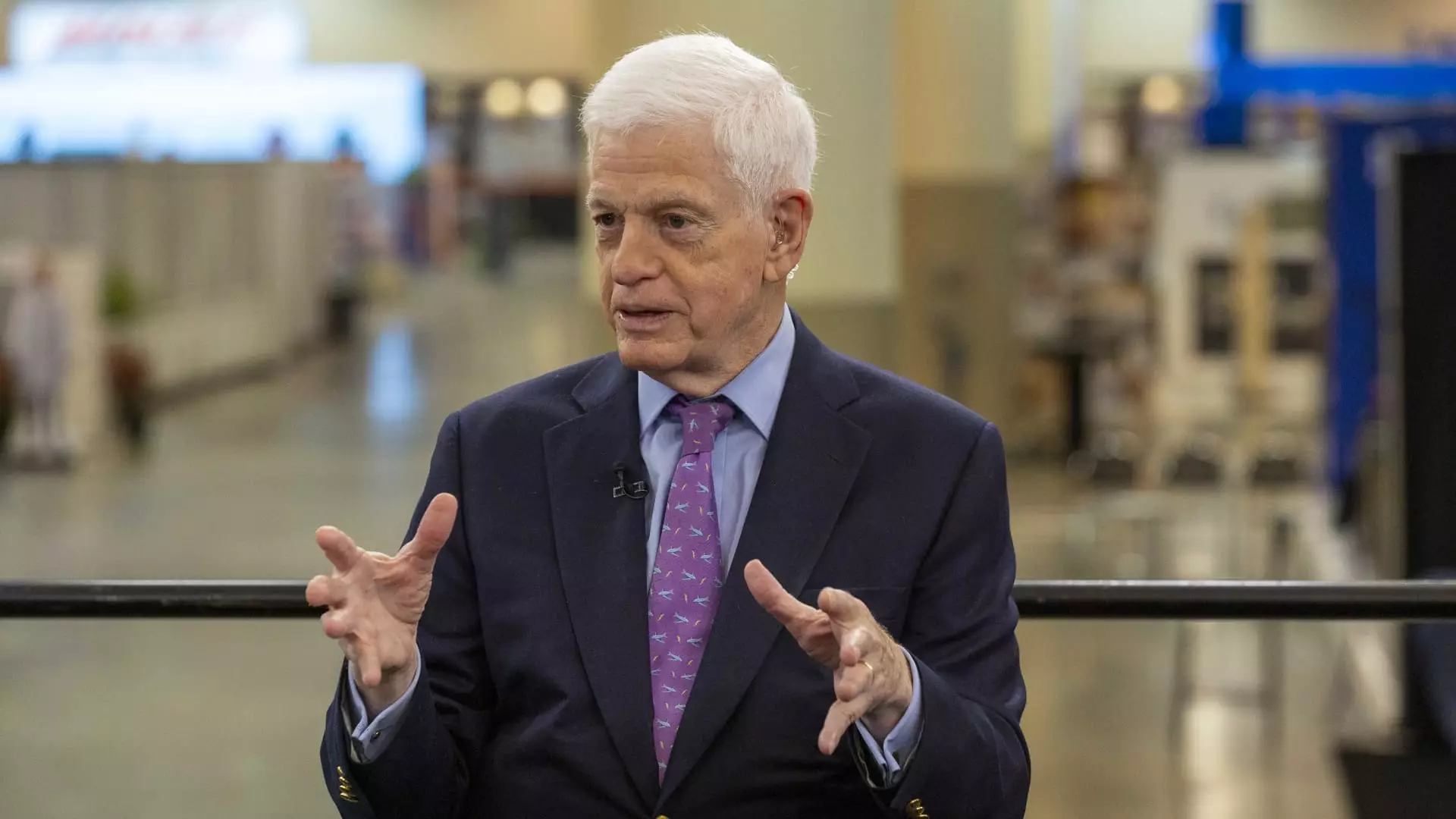When Mario Gabelli—the seasoned investor and CEO of Gamco Investors—urges listeners to buy shares of the Atlanta Braves, he’s not just suggesting a casual investment in a sports team. On CNBC’s “Power Lunch,” Gabelli made a provocative statement, suggesting that purchasing even a single share could be a more impactful gift than a traditional Easter present. This calls to attention the sentiment surrounding sports as an investment opportunity in today’s market. The Atlanta Braves, while emblematic of America’s pastime, are also a small but growing part of a larger economic narrative that intertwines sports, entertainment, and strategic financial moves.
Investing in sports franchises has shown to yield profitable returns in the past, often outperforming traditional stocks due to the unique positions they hold in their respective markets. In an age where sports are as much about branding and culture as they are about the game itself, the Braves are quickly becoming an attractive proposition for investors seeking something beyond typical portfolios.
The Power of Strategic Leadership
Gabelli didn’t stop at championing the Braves; he also highlighted other intriguing investment opportunities, such as Crane Co. and GATX—both companies known for their operational expertise and forward-thinking leadership. One can’t help but recognize the ethical dimension in Gabelli’s investment philosophy. The seasoned investor praised Crane CEO Max Mitchell for expertly managing company assets and diversifying its portfolio, which is a crucial lesson for any potential stakeholder.
The ability of companies like Crane Co. to innovate and adjust to market demands is more vital now than ever. In a world where vulnerabilities in traditional sectors can lead to significant downturns, turning to companies with proven leadership and robust cash flow can provide a safety net. This reinforces the notion that investment is not merely a game of numbers; it’s also about the quality of management and vision within unfolding market dynamics.
A Broader Lens on Connectivity
Interestingly, Gabelli did not restrict his investment insight to domestic companies. He brought attention to GATX, a railcar leasing company that has expanded its footprint in various international markets, including Europe and India. Showing astute discernment, Gabelli pointed out that this company capitalizes on essential infrastructural needs—transportation and logistics—key themes that will likely dominate the economic conversation in the coming years.
This broader connectivity, both economically and geographically, reveals how investors can benefit from diversification. As world markets become more interlinked, choosing investments that are not just promising domestically but also equipped to thrive internationally opens avenues for both risk mitigation and opportunity.
The Entertainment Industry: A Goldmine
Adding to this rich tapestry of investment discourse, Gabelli also praised Sony Group, the parent company of PlayStation, which has been a consistent player in the booming entertainment landscape. With upcoming titles expected to drive sales and the music division set for a boost from potential price increases by Spotify, the future looks bright for this entertainment giant. These developments suggest that in our digital age, investing in the entertainment sector can be as lucrative as traditional industries.
The resilience and adaptability of companies like Sony emphasize a prevailing truth in the investment landscape: entertainment is no longer an ancillary revenue stream but rather becomes central to how investors can foresee growth. For instance, the value of cultural influence – something sports teams and entertainment entities inherently possess – can be a game changer in determining market worth.
In a climate marked by uncertainty and rapid changes, Gabelli’s perspective on investing in the Atlanta Braves and companies like Crane and GATX opens up essential discussions around the nexus of sports, strategic leadership, and entertainment. His insights encourage a paradigm shift, urging potential investors to see value where conventional wisdom may overlook.
In a era ripe for innovation, it is imperative for investors—whether seasoned or novice—to explore avenues that not only promise financial returns but also enrich the cultural fabric of our society. As we move forward, embracing these unconventional investment strategies may very well distinguish the wise investor from the rest.


Leave a Reply